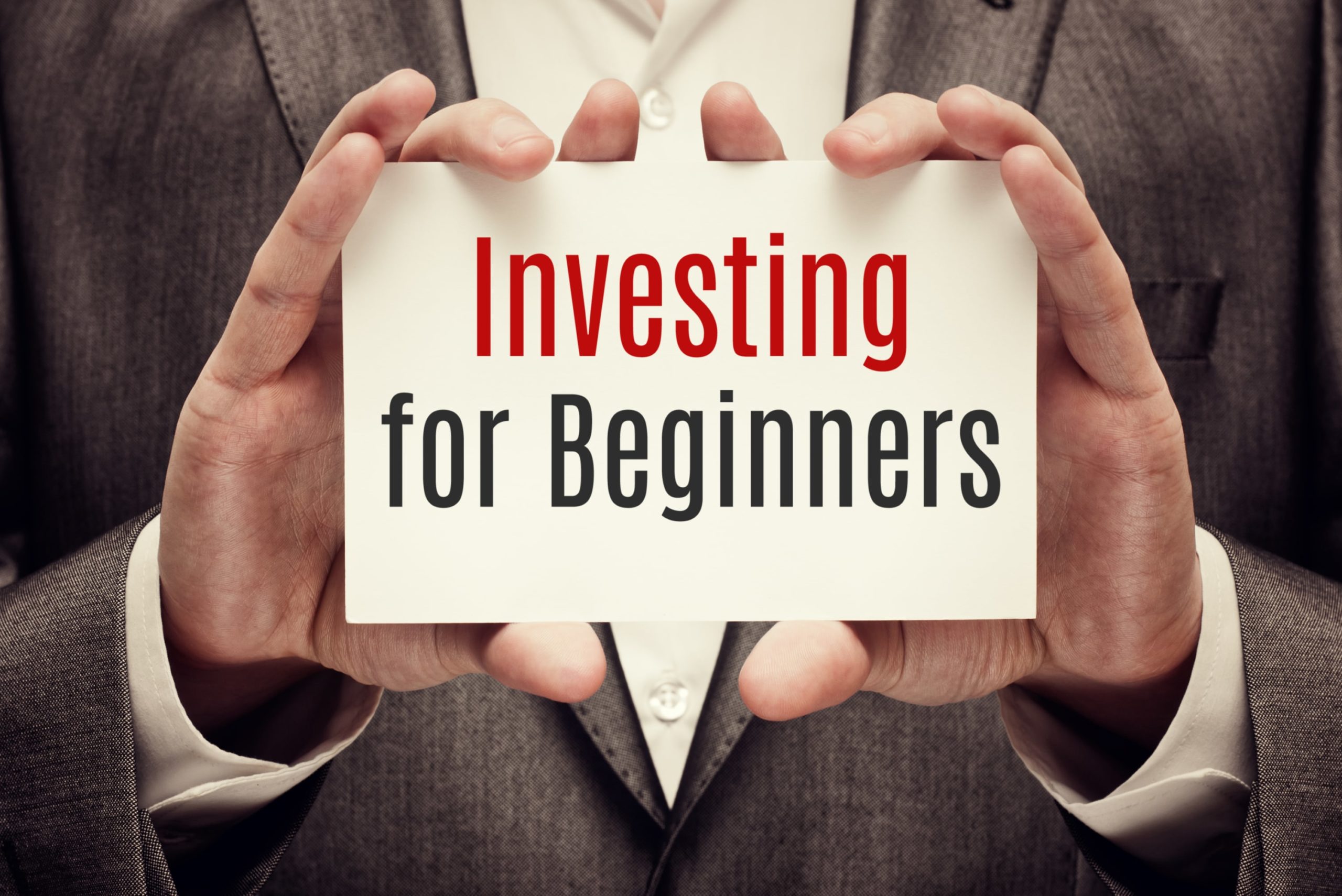Where To Invest Money When Your In Your 20's
Investing for Beginners | Invest Now with Little or No Capital Without Stress
ADS! Download JAMB CBT Software Now for FREE!
– Investing for Beginners –
Nowadays, several investing companies have made policies that offer ease of investing for beginners. Even the poor people now get to enjoy the full privilege of investing, unlike in times past where investment was only made by the rich people. This is pretty much easier nowadays for beginners with little capital to also invest. Keep reading to learn more of this.

Complicated policy barriers have been knocked down by various investment companies to make investment options available for every class of people including the poor and beginners who have just small amounts of money to invest.
With several investment opportunities, there's no excuse for anyone to skip out. And that is good news with the reason that investing is a great way to grow wealth.
Why is Investing Important?
You might have heard someone gossip about how cheap gas prices or other products and services used to be back in the day. This is because inflation diminishes the value of money as years passed by.
By investing, you will get to combat inflation, plummeting your chances of being able to get the same amount of goods and services in the future that an individual is capable of today.
Investing helps individuals to make their money work for them because of compounding. Compound earnings simply mean that any returns individuals earn are reinvested to earn additional returns.
Also, the earlier individuals start investing, the more benefit they will gain from compounding.
What Beginners Should Consider
Before beginners jump into investing, there are quite a number of some things to think about. If you are a beginner, consider what goal you are expecting to achieve by investing with your time horizon, alongside the length of time you have to invest before reaching that goal.
If the time horizon to your goal is too short, investing might not be a better option for you. Check out our article on how to invest for short-term or long-term goals.
Risk Tolerance and Diversification of Investment
All investments are known to have some level of risk because the market is volatile as it moves up and down over time. It is important that you understand your personal risk tolerance. This implies knowing how comfortable you are with risk or how much volatility you can handle as well.
When investing, a good rule of thumb is not to put all your hope in one dimension. Instead, diversify by spreading your money across various investments as this will help you to reduce investment risk.
This is the reason we outline below the use of mutual funds or exchange-traded funds as our recommended investment option for the most part, which allows investors to purchase baskets of securities rather than individual stocks and bonds.
What Kind of Investing is Right for Me

1. A 401(k) or Other Employer Retirement Plan
If you have a 401(k) or another retirement plan at work, it is likely the first place you should put your money most especially if your company matches a portion of your contributions. Besides, this match is free money and a guaranteed return on all your investment.
You can contribute up to $19,500 to a 401(k) in 2020 (or $26,000 if you're 50 or older), but that doesn't mean that you should contribute that much. The beauty of a 401(k) is that it is basically not an investment minimum.
Moreso, you can start with as little as 1% of each paycheck. In spite of this, it's a good idea to aim for contributing at least as much as your employer match.
For instance, a common matching arrangement is about 50% of the first 6% of your salary that you contribute. To capture the full match in that scenario, you would have to contribute at least 6% of your salary each year. But you can still find your way into that over time.
When you elect to contribute to a 401(k), the money will go directly from your paycheck into the account without ever making it to your bank. Most 401(k) contributions are made pretax. Some 401(k)s today will place your funds by default in a target-date fund. Here's how to invest in your 401(k).
2. A Robo-Advisor
You know you're supposed to invest, you've managed to scrape together a little bit of money to do so, but you would really rather wash your hands of the whole situation.
The good news is that you largely can. Thanks to robo-advisors for this possibility offered. Their services manage your investments for you with the utilization of computer algorithms.
Due to low overhead, they will only charge low fees in lieu of human investment managers. A robo-advisor basically costs 0.25% to 0.50% of your account balance per year. Also, they will also allow you to open an account with no minimum.
They are a great way of investing for beginners because they often require very little money and they do most of the work for you. That doesn't mean that you shouldn't keep an eye on your account.
In spite of being your money, you would never want to be completely hands-off, but a robo-advisor will do the heavy lifting that allows investing for beginners
If you're much interested in learning how to invest, and you need help to foster the investment, robo-advisors can also help in that aspect likewise. It is more useful to see how their service constructs a portfolio and probably look into what investments are used.
Some services also give educational content and tools of investing for beginners, and a few even allow you to customize your portfolio to a degree if you determine to experiment a bit in the future.
READ ALSO:
➛ Top 20 Quick Loans and Lending Platforms in Nigeria
➛ How to Make Money from Home Without Stress
➛ 4 Unique Ways How to Edit Youtube Videos
3. Investment Apps
Several investing apps allow investing for beginners. One of such is Acorns, which rounds up your purchases on a linked debit or credit card to invest the change in a diversified portfolio of ETFs. Relative to this, it works like a robo-advisor, managing that portfolio for you.
There is no minimum to open an Acorns account of investing for beginners. However, the service will start investing for you immediately after you've accumulated at least $5 in round-ups. You can also make lump-sum deposits.
Another app option is Stash, which helps to teach investing for beginners alongside how to build their own portfolios out of ETFs and individual stocks. This service also offers a managed portfolio.
4. High-Yield Savings Accounts
Online savings accounts and cash management accounts offer higher rates of return than you may get in traditional bank savings or probably a checking account.
Cash management accounts are pretty much like a savings account-checking account hybrid. They may pay interest rates similar to savings accounts, though they are basically offered by brokerage firms and may come with debit cards or checks.
This kind of investing for beginners is best for short-term savings or money you may want to access occasionally or in case of an emergency or vacation fund.
In addition to this, transactions from a savings account are limited to only six per month. Cash management accounts give more flexibility and in some cases higher interest rates.
If you are new to saving and investing, a better option is to keep between three and six months' worth of living expenses in such an account before allocating more towards the investment products.
With regards to opening a savings account, online banks always offer higher rates than what you will expect from the traditional banks with physical branches.
Investment companies and robo-advisors like Betterment and SoFi offer competitive rates on cash management accounts as they offer a good option of investing for beginners.
5. Certificates of Deposit
This is a federally insured savings account that gives a fixed interest rate for a certain period of time.
A Certificate of Deposit (CD) is for the money you pretty much know you'll need on a particular date in the future (e.g., a home down payment or a wedding). Common term lengths associated with this are one, three, and five years.
Therefore, if you're trying to safely increase your money for a specific purpose within a specific time interval, CDs are a good option for you.
It is important to note that from getting your money out of a CD early, you will likely have to pay a fee. As with other types of investments, it is noteworthy not to buy a CD with money you might need soon.
CDs are sold on the basis of term length. The best rates are basically found at online banks and credit unions, however.
6. Money Market Funds
Money market mutual funds are an investment product of investing for beginners. Be careful not to get confused with money market accounts which are bank deposit accounts similar to savings accounts.
When you invest in a money market fund, be rest assured that your money purchases a collection of high-quality, short-term government, bank, or corporate debt.
Investors use money market funds to endorse a portion of their portfolio in a better safer investment than stocks, or as a holding pen for money allocated for future investment.
While money market funds are generally active, providing modalities of investing for beginners, you don't have to expect higher returns (and higher risk) of other investments. Money market fund growth is prone to high-yield savings account yields.
Money market mutual funds can be bought directly from a mutual fund agency or a bank. However, the broadest selection can only be available from an online discount brokerage.
7. Government Bonds

A government bond is a loan that accrues from the borrower to a government entity like the federal or municipal government. They pay investors interest on the loan over a particular period of time, basically, one to 30 years.
Relative to a steady stream of payments, bonds are always known as fixed-income security. It is worth noting that government bonds are virtually a risk-free investment as they are supported by the full faith and credit of the U.S. government.
In exchange for your safety, you will not see a high return with government bonds as with other types of investments. If you were to have a portfolio of 100% bonds (uncommon to a mix of stocks and bonds), it would be very hard to hit your retirement or long-term goals.
8. Corporate Bonds
Corporate bonds operate in the same way as government bonds if only you are making a loan to a company, but not to the government.
As such, these loans are not endorsed by the government, thus making them a riskier option. And if this is a high-yield bond (sometimes known as a junk bond), it will actually be substantially riskier, thus taking on a risk/return profile that resembles stocks compared to bonds.
Investors seeking fixed-income security with very higher yields from the company than government bonds will be capable of taking on a bit more risk in return.
With Incorporate bonds, the higher the likelihood the company will go out of business, the higher the yield. Conversely, bonds offered by large, stable companies will generally have a lower yield.
However, this would be up to the investor to find the risk/return balance that will work for them.
Similar to government bonds, you can get to buy corporate bond funds or individual bonds via an investment broker.
9. Mutual Funds
This is a mutual fund that pools cash from investors to buy stocks, bonds, or other assets. Mutual funds give investors a platform to diversify, spreading their money across various investments.
This is set designed to hedge against any single investment's losses.
If you're saving for retirement or probably another long-term goal, mutual funds are a convenient way to get along with it, thus getting exposure to the stock market's superior investment returns without having to buy and manage a portfolio of individual stocks.
Some funds reduce the scope of their investments to companies that meet certain criteria, such as companies in the biotech industry, technology, or corporations that pay high dividends. This will allow you to focus on certain investing niches.
Mutual funds are available directly from the companies that manage them, including discount brokerage firms. Almost all of the mutual fund providers we review offer no-transaction-fee mutual funds (which means no commissions) as well as tools to help you pick funds.
Be conscious that mutual funds basically require a minimum initial investment ranging from $500 to thousands of dollars, though some providers and agencies will waive the minimum if you would agree to set up automatic monthly investments.
10. Index Funds
An index fund is a type of mutual fund that endorse the stocks in a specific market index (e.g., the S&P 500 or the Dow Jones Industrial Average).
The goal is to provide investment returns that equal the underlying index's performance which would not be for an actively managed mutual fund that pays professionals to curate a fund's holdings.
Index mutual funds are some of the best investments available for long-term savings goals. In addition to being more cost-effective due to lower fund management fees, index mutual funds are less volatile than actively managed funds that try to beat the market.
Index funds can be especially well-suited for young investors with a long timeline, who can allocate more of their portfolio toward higher-returning stock funds than more conservative investments, such as bonds.
According to Fernandez, young investors who can emotionally weather the market's ups and downs could even do well to invest their entire portfolio in stock funds in the early stages.
11. Exchange-Traded Funds (ETFs)

ETFs are much like mutual funds in the sense that they pool investor money to purchase a collection of securities, providing a single diversified investment. Investors get to buy shares of ETFs just like they would buy shares of an individual stock as well.
Just like index funds and mutual funds, ETFs are a good investment depending on whether you have a long time horizon.
Notwithstanding, ETFs are ideal for potential investors who don't have enough money to meet the minimum investment requirements for a mutual fund with the reason that an ETF share price may be as much lower than a mutual fund minimum.
ETFs have ticker symbols just like stocks and are available via discount brokerages. It is worthy of note that Robo-advisors also use ETFs to construct client portfolios.
12. Dividend Stocks
Dividend stocks can offer the fixed income of bonds as well as the tremendous growth of individual stocks and stock funds likewise.
Dividends are frequent cash payments companies that pay to shareholders and are oftentimes associated with stable, profitable companies.
While share prices of many dividend stocks may not increase as high or quickly as many growth-stage companies, some including Dividend Stocks can be attractive to investors due to the dividends and stability they provide as factors of investing for beginners.
Any investor, ranging from first-timer to retiree opt into this kind of investing. This is because there are specific types of dividend stocks that may be better on the basis of where you are in your investing journey.
Young investors, for example, may do well to look into dividend growers, which are companies with a strong track record of consecutively increasing their dividends.
These companies may not have high yields as its policy for investing for beginners, but if their dividend growth keeps up, they could offer this in the future.
Over a period of time, combined with a dividend reinvestment plan can result in returns that reflect those of growth stocks that do not pay dividends.
Older investors seeking more stability or fixed income can consider stocks that pay consistent dividends.
On a shorter timeline, reinvesting these dividends is not a guaranteed goal, instead, it takes the dividends as cash could be a part of a fixed-income investing plan. The easiest way to buy dividend stocks is via an online broker.
13. Individual Stocks
A stock represents a share of ownership in a company. Stocks give the largest potential return on your investment while exposing your money to an increased level of volatility.
These cautionary words are not meant to incur a negative effect on your stocks. Rather, they are meant to guide you towards the diversification of buying a collection of stocks via mutual funds as opposed to buying individually.
Investors with a well-diversified portfolio who are willing to take on a little more risk. Due to the volatility of individual stocks, a good rule of investing for beginners limits their individual stock holdings up to about 10% or less of their overall portfolio.
The easiest way to buy stocks is through an online discount broker or its alternatives. Once you set up and fund an account with them, you'll get to choose your order type and then become a bonafide shareholder. Here are step-by-step instructions on how to buy stocks.
14. Alternative Investments
If you are not investing in the stock, bond, or cash equivalent instruments, there is a good opportunity that your investment is part of the alternative assets class.
This type of investment includes cryptocurrencies like Bitcoin and Ethereum, private equity, gold and silver, hedge funds, and even coins, stamps, alcohol, and art.
Alternative investments rose in fame in the years following the Great Recession, when both stockholders and bondholders saw their savings drop significantly.
Gold prices, for instance, surged in 2011, hitting highs that were not toppled until August 2020. But this is par for the course in alternative investments, as these often unregulated instruments are rife with volatility.
This also endorses Investors who would want to diversify from traditional investments and hedge over stock and bond market downturns.
While some online brokers will offer access to lucrative alternative investments, most of them will offer alternatives that are available only via private wealth management firms.
However, there are ETFs such as gold and private equity ETFs made available to track the asset itself, as well as companies revolving around the asset including gold mining and refining companies.
15. Real Estate
Traditional real estate investing encompasses buying a property and selling it later for a profit, or probably owning properties and collecting rent as a fixed income. But there are other, far more hands-off ways to invest in real estate.
One common way is through real estate investment trusts or REITs. These are companies that own income-generating properties (think malls, hotels, offices, etc.) and offer regular dividend payments.
Real estate crowdfunding platforms, which often pool investors' money to invest in real estate projects, have also risen in popularity in recent years.
Investors who already have a healthy investment portfolio and are seeking further diversification or are willing to take much more risk to yield higher returns.
For the reason that real estate investments are highly illiquid, investors should not put any money into an investment they may need to access quickly.
Some REITs can be bought on the public stock market via an online stockbroker, while others are only made available in private markets.
Similarly, some crowdfunding agencies are open to accredited investors only, while others are always open to any investors not putting restrictions on who can invest.
The Secret to Choosing the Right Investment
Building wealth via the investments outlined above can begin at any age and at any income level. The secret to this is to choose the right investments based on the following considerations:
➛ Your timeline: Money earmarked for near-term needs should be made to be easily accessible and in a safe and stable investment. For long-term goals, you will have more leeway to invest in various volatile assets.
➛ Your risk tolerance: The more risk you have decided to take by exposing your money to the short-term swings of the stock market, the higher the long-term potential payoff. Also, spreading your money across several types of investments will smooth out your investment returns.
➛ How much money you have: Some investments have a minimum balance or initial investment requirements. It is important to note that there are workarounds and agencies that accommodate most investment budgets if you know where to invest.
➛ How much help you need: DIY investors can access many of the investments outlined above by opening a brokerage account.
If you are not sure which investment is best for your condition, you can always hire a low-cost, automated service called a robo-advisor to create an investment portfolio for you.
However, this will be done based on certain criteria. Some short-term investments, like savings accounts, can be opened at a bank.
READ ALSO:
➛ What to Get Someone Who Has Everything
➛ Most Expensive Item in the World
➛ Best Agencies to Receive Free Government Grant
Basic Types of Investing

1. Ownership Investments
Ownership investments are the most valuable and profitable class of investment. The following are examples of such:
➛ Stocks: Owning stock implies owning a portion of a company. It may be a minuscule stake, but it is ownership.
Broadly speaking, all traded securities, from futures to currency swaps, are ownership investments. Investors get to purchase them in order to share in the profits, or simply because they will rise in value or both.
Some of these investments, such as stock oftentimes come with the right to a portion of the company's reputation. Others, such as futures contracts also come with the right to perform certain actions that will benefit their owners.
Your eager expectation of profit is realized by how the market sees the asset you own the rights to. If you own shares in Apple (AAPL) and the company posts a record profit, it will interest you to know that other investors are going to want Apple shares too.
Their demand for shares stirs up the price, thus increasing your profit if you choose to sell the shares.
➛ Business: The money put into starting and running a business is an investment.
Entrepreneurship is one of the investments to make for the reason that it requires more than just money.
By creating a product or service and then getting to sell it to the people who want it, entrepreneurs can make huge personal fortunes.
Bill Gates, founder of Microsoft and one of the world's richest men, is a typical example of some people who deal with such.
➛ Real Estate: Houses and apartments that are purchased to rent out or to resell are investments.
The house you live in can have multiple purposes such as providing for shelter. It may appreciate in value over time, though it may also lose its value, depending on the market conditions.
In addition, the house you live in not only offers basic necessities but also serves as a source of income that can be realized when the house is sold at a profit.
Many people made the error of buying houses that they cannot afford with the assumption that these houses can soon be sold for much more.
➛ Precious Objects and Collectibles: Gold and precious gemstones, Impressionist paintings and signed LeBron James jerseys, all can all be considered as ownership investments. This is due to the reason that these properties were bought with the aim of reselling them for a profit.
Like any other investments, they may increase or fall in value over time. Tastes in art and collectibles may also change. Also, gold and gems will get to have market values that fluctuate.
From the cold-eyed view of the investor, they also have costs. They must be insured and kept in pristine condition in order to retain their value.
2. Lending Investments
Lending money is a class of investing. The risks involved here are generally lower than for many investments. Consequently, the rewards are relatively modest as well.
A bond issued by a company or a government will pay a set amount of interest over a specific period of time. The only real risk stems from the reason that the company or government will go bankrupt. Also, in this case, the bondholder may probably get little or none of the investment back.
➛ Savings Accounts: A frequent savings account is an investment. The investor is particularly lending money to the bank. The bank will pay interest to the account holder and will earn its profit by loaning out the rest of the money to businesses at a higher rate of interest.
The return on savings accounts is recently quite low, but the risk is mostly zero. In the U.S., savings accounts are fully insured up to $250,000 by the Federal Deposit Insurance Corporation (FDIC).
➛ Bonds: Bond is a catch-all category for a wide array of investments from U.S. Treasuries and international debt issues to corporate junk bonds and credit default swaps (CDS).
The risks and returns may vary between the different types of bonds. Generally, these types of lending investments oftentimes pose a lower risk, thus providing a lower return than ownership investments.
3. Cash Equivalents
These are investments are "as good as cash," which means that they can be converted back to cash easily and quickly.
Money Market Funds: Money market funds are always similar to savings accounts, hence can be purchased at any bank.
Here, the difference is that the investor will commit to leaving the money alone for a particular period of time in return for a slightly higher rate of interest. The time interval for this would be as little as three months and no longer than a year.
Money market funds are always more liquid than other investments. This means that you can write checks out of money market accounts just as you would write with a checking account.
However, once you start to write checks on it, you have erased much of its value as an investment.
What Should a Beginner Know About Investing

There are certain important things to know bout investing for beginners. Things like education, consumer purchases are not essentially regarded as investments.
➛ Education: Though education is oftentimes called an investment. This is true to some extent because it can have lifelong rewards that include a higher income if employed in a high-paid company.
Many people can argue that they sell their education as though it was a small business service in exchange for a steady income.
By this perception, some people get to invest when they buy a stress ball or a cup of coffee. These are goods that provide benefits, but they cannot be considered as investments.
➛ Consumer Purchases: These are beds, cars, mobile phones, TVs, and anything else that depreciates in value with use and time, are not investments. Even if you have spent more to acquire something of higher value; but once you've used it, it is still used goods.
What are the Principles of Investing
In the finance world, the market is used to refer to a place where you can buy and sell shares of stocks, bonds, alongside other assets.
You need to open an investment account, like a brokerage account, which you fund with cash that you can then use to buy stocks, bonds, and other investable assets. Big-name firms like Schwab or Fidelity will let you do this similarly to how you'd open a bank account.
To fully understand the principles of investing for beginners, it is also important to outline stocks and bonds as publicly traded companies that utilize the market to raise money for their operations alongside growth.
When a company gives bonds on the market, they are generally asking investors for loans to raise money for their organization. In this case, the investors buy the bonds, then the company pays them back in addition to a percentage of interest over time.
Stocks, on the other hand, are small pieces of equity in a company. When a company goes from private to public, its stock can be certainly bought and sold on the market. This means that it is no longer privately owned.
A stock price is basically reflective of the value of the company, though the actual price is determined by what market participants are able to pay or accept at any given time.
Frequently Asked Questions
Before beginners jump into investing, there are quite a number of questions they would probably ask. To clarify your doubts, we have come up with answers to several questions below that you may ask about investing for beginners.
Ques: How do I invest $100?
If you have $100 to invest, here are our six best suggestions for what to do with it:
➛ Start an emergency fund.
➛ Use a micro-investing app or robo-advisor.
➛ Invest in a stock index mutual fund or exchange-traded fund.
➛ Use fractional shares to buy stocks.
➛ Open an IRA.
➛ Put it in your 401(k).
Ques: How do I open a brokerage account?
➛ Determine the type of brokerage account you need
➛ Compare the costs and incentives
➛ Consider the services and conveniences offered
➛ Decide on a brokerage firm
➛ Fill out the new account application
➛ Fund the account
➛ Start researching investments
Ques: What is the S&P 500?
The S&P 500 (also known as the Standard & Poor's 500) is a stock index that consists of the 500 largest companies in the U.S. It is generally considered the best indicator of how U.S. stocks are performing overall.
Now that you have learned so much about investing for beginners, I guess you would not hesitate to invest with your little capital.
Many companies are waiting to embrace you into investing with them and yield high returns just like the rich people have been doing.
If there is anything question you would like about investing for beginners, feel free to let us know by using our comment section box below.
CSN Team.
Join Over 5 Million Subscribers Today!
=> FOLLOW US ON INSTAGRAM | FACEBOOK & TWITTER FOR LATEST UPDATES
ADS: KNOCK-OFF DIABETES IN JUST 60 DAYS! - ORDER YOURS HERE
COPYRIGHT WARNING! Contents on this website may not be republished, reproduced, redistributed either in whole or in part without due permission or acknowledgement. All contents are protected by DMCA.
The content on this site is posted with good intentions. If you own this content & believe your copyright was violated or infringed, make sure you contact us at [[email protected]] to file a complaint and actions will be taken immediately.
Where To Invest Money When Your In Your 20's
Source: https://www.currentschoolnews.com/articles/investing-for-beginners/
Posted by: helmickiriplard.blogspot.com

0 Response to "Where To Invest Money When Your In Your 20's"
Post a Comment